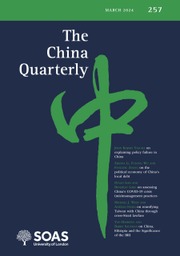Dominance Through Division
The governance of Japan presents a puzzle: it is a democracy yet is dominated by a single party that wins almost all elections. Stanger still, the Liberal Democratic Party (LDP) and its policies are not particularly popular with voters. How has this situation arisen, and how is it sustained? Amy Catalinac argues that when politicians compete in electoral districts with discernible voter groups, they can make allocations of central government resources contingent on how those groups vote. Using a wealth of quantitative and qualitative data spanning 1980-2014, Catalinac shows that LDP politicians have been doing just that, leveraging their dominance to make groups compete for resources. Dominance Through Division sheds new light on why the LDP has remained in power for so long, why opposition parties are weak, and why policy preferences do not always align with vote choice. It also explains why Japan's 1994 electoral reform has had limited impact.
- Tackles the puzzle of why the Liberal Democratic Party (LDP) wins almost every election in Japan in spite of low support and unpopular policies
- Uncovers the logic between money and votes in Japan – providing a new theory for how politicians competing in electoral districts composed of discernible voter groups can use allocations of geographically-targetable central government resources to increase their chances of winning the next election
- Adopts a mixed-method approach that combines deep knowledge of the case of Japan; qualitative data such as case studies, anecdotes, interviews, survey data, and campaign manifestos; with a set of rigorous statistical tests that are clearly interpreted
Reviews & endorsements
‘In this deeply-researched study, Amy Catalinac advances an important new theory of the conditions under which reporting electoral results at sub-district levels can (a) facilitate clientelistic exchanges, producing what she calls group-based clientelism; and (b) enable dominant parties to exploit a ‘tournament' strategy to entrench themselves in power. This work will quickly become a must-read in the general literature on clientelism and in the specific literature on Japanese elections.' Gary W. Cox, Stanford University
‘Amy Catalinac's Dominance Through Division offers a fresh and ambitious take on the persistent puzzle of how Japan's long-ruling LDP uses its influence over government spending to its electoral advantage. Her explanation is both provocative and compelling, and is sure to inspire waves of new research on Japan and beyond.' Daniel M. Smith, University of Pennsylvania
‘Though clientelism is often studied as a form of competition dominant in developing democracies, Catalinac's creative book shows how it continues to pervade elections in one of the world's wealthier democracies. Offering a provocative new explanation for the persistence of Japan's dominant party system, Catalinac meticulously uncovers how ruling party politicians continue to pervert electoral accountability, leveraging their influence over the bureaucracy to force groups of voters to set aside their policy preferences and compete against each other in tournaments for the party's attention. Richly-researched and carefully-theorized, Dominance Through Division charts an innovative new course in the study of clientelism and provides a new lens through which to understand the continued weaponization of distributive politics even in ostensibly programmatic political systems.' Noah Nathan, Associate Professor of Political Science, Massachusetts Institute of Technology
‘An impressive blend of a compelling question, keen theoretical insights, creative empirical work, and deep case knowledge. In conversation with a broader literature on clientelism under democracy, Catalinac shows how dominant parties can turn the democratic tables on voters – making voters compete for the favor of politicians.' Allen Hicken, University of Michigan
Product details
March 2025Paperback
9781009588539
390 pages
229 × 152 × 25 mm
0.58kg
Available
Table of Contents
- 1. Introduction
- 2. The enduring success of Japan's Liberal Democratic Party
- 3. A theory of group-based clientelism
- 4. Second prize is a set of steak knives
- 5. Perfect storm conditions for tournaments in Japan
- 6. How politicians tie money to electoral support
- 7. Which electoral districts get more money and why
- 8. How tournaments impact decisions to vote
- 9. Conclusion
- 10. Appendix
- Bibliography.










